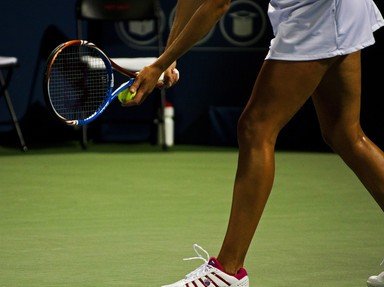Quiz Answer Key and Fun Facts
1. The Wimbledon tennis tournament was first held in 1877 with an entirely British field of 22 players, so it should be no surprise to learn that the men's singles tournament had a British winner every year from 1877 to 1906. The first non-British player to win it was from which country?
2. The first four years of the Open Era at Wimbledon were dominated by Australia with Rod Laver winning the men's singles in 1968 and 1969 and John Newcombe in 1970 and 1971. Therefore, it must have been a bit of a shock when no Australians were even seeded for the 1972 event. Which American player went on to win that title?
3. In 1976, who became the first player in Wimbledon's Open Era to win the men's singles title without dropping a single set in the whole tournament?
4. It took 125 years for a defending champion of the Wimbledon men's singles competition to be eliminated in the first round of the tournament, but that's exactly what happened to the 2002 winner in the first round of the 2003 event. Which unlucky Wimbledon champion holds this somewhat ignominious record?
5. Between 1993 and 2000 the Wimbledon men's singles event was dominated by Pete Sampras, with 1996 being the only year when he didn't lift the trophy. On that occasion he was defeated in the quarter-finals by which player, who went on to win the tournament in Sampras' place?
6. Each year Wimbledon hands out a small number of wildcard entries to their prestigious tournament to players who wouldn't otherwise have met the entry qualifications. Who was the first wildcard entrant to win the championship?
7. A first-round men's singles match at Wimbledon in 2010 set a new record for the longest match in the history of The Championships when it dragged on for more than 11 hours, finally ending with a fifth-set score line of 70-68. Who were the two players involved?
8. Prior to 1985 no unseeded player had won the Wimbledon men's singles title. Who was the first player to achieve this feat?
9. Andy Roddick won a total of 39 games in the 2009 men's singles final, but lost the title to his opponent who had only won 38. Who was that year's Wimbledon champion?
10. In 1977, a qualifier made it through to the semi-final stage of Wimbledon's men's singles competition for the first time. What was his name?
Source: Author
Fifiona81
This quiz was reviewed by FunTrivia editor
gtho4 before going online.
Any errors found in FunTrivia content are routinely corrected through our feedback system.
